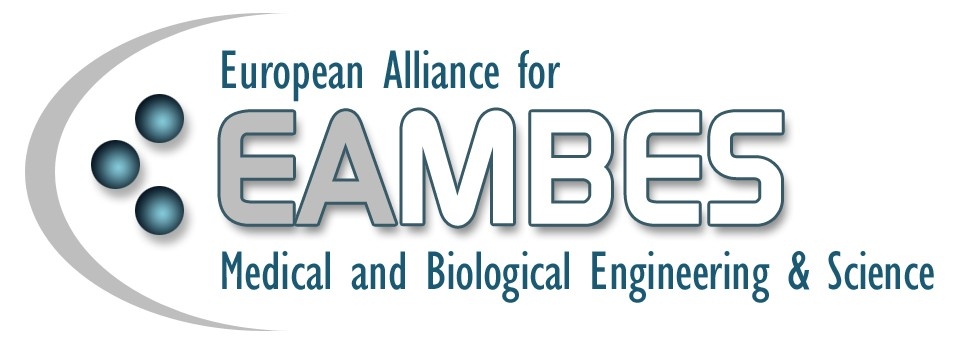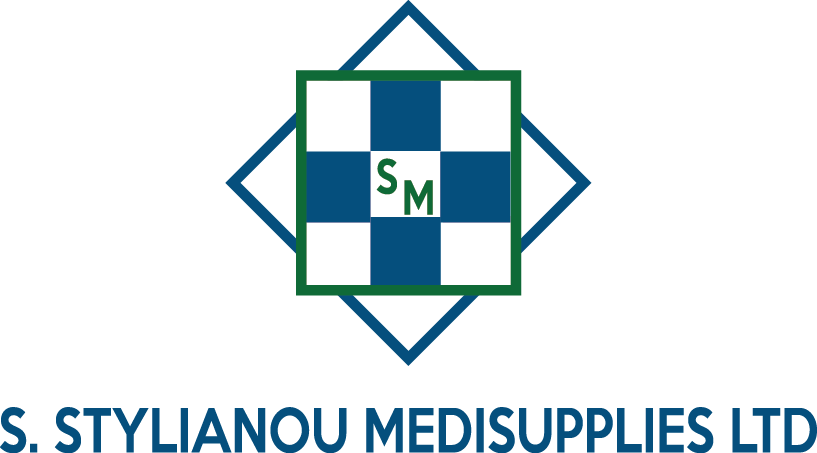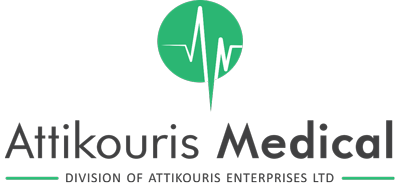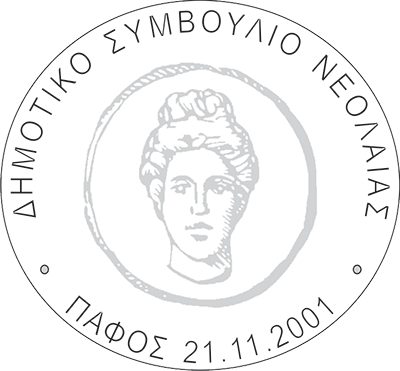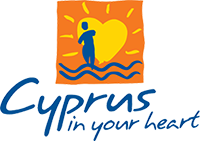MEDICON 2016
MARCH 31ST - APRIL 2ND 2016 PAPHOS, CYPRUS
Click to see the Special Sessions
IET Healthcare Technology Letters, Special Session on mHealth
Special Session on Ambient Assisted Living Technologies based on Internet of Things
Special Session on mHealth Medical Video Communication Systems
Special Session on Wearable Sensor Networks for Personalised Health Care
Special Session
Towards an improved and unifying framework of CTG-based monitoring for foetal welfare assessment
First Proposer – Michel HARITOPOULOS
Biographical Sketch
Michel Haritopoulos is an Assistant Professor in the IRAuS team of the PRISME laboratory, Université d’Orléans, France, since September 2003. He
received a PhD in Signal Processing in 2000 on Blind Source Separation (BSS) methods applied to eddy-current sensors. Afterwards he worked as a
post-doctoral research associate for eighteen months on non-linear Independent Component Analysis (ICA) and Image Denoising in The University of
Manchester. He has been a co-chair of EURISCON98 conference, Athens, Greece. His main research interests are cyclostationary analysis and BSS
methods applied to bioelectric signals (CTG, foetal ECG, PCG, EMG…) and to rotating machines’ vibration analysis and monitoring.
Second Proposer – Alfredo ILLANES
Biographical Sketch
Alfredo Illanes is an Assistant Professor at the Faculty of Engineering Science in the Universidad Austral de Chile (UACh), since 2008. After obtaining a
master degree in Signal Processing with application to heart rate variability analysis in the I3S CNRS affiliated laboratory in France, he received a Ph.D.
at INRIA, Rennes, France, in the area of electrocardiogram (ECG) signal processing and modeling in 2008. Since then, he has been involved in several
applied research projects in the field of ECG signal processing, mainly on signal segmentation and QT interval modeling. His current main research interests
involve cardiotocographic signals feature extraction and parametric modeling. Current scientific collaborations concern the UACh Medicine
Faculty and the Prisme Laboratory, Université d’Orléans, France.
Theme
Therapeutic and Diagnostic Systems, Devices and Technologies & Clinical Engineering
Keywords
Cardiotocogram, foetal wellbeing, expert systems, biomedical signal processing
Abstract
Since the early 1970s Doppler ultrasound appeared as a new tool for Foetal Heart Rate (FHR) monitoring. Cardiotocography (CTG) remains the leading
clinicians’ instrument to make quick decisions to safeguard the well-being of the foetus during labour and delivery. The synchronous acquisition and
trace of both foetal heart rate and expectant mother’s contractions in a non-invasive way during labour yield a meaningful assistance to the maternity
care providers. But research work in the literature highlighting important inter- and intra-observer variability has undermined the soundness of actual
established guidelines. Recent studies conclude that these guidelines are too complex and should be optimised in order to increase reproducibility in
the context of a very large number of possible stages. To overcome these interpretation problems other solutions have been proposed such as training
simulators and CTG-based monitoring aided by Expert Systems (ESs), i.e. computerized decision aids. A large majority among them, as they use a computerized
knowledge database, just produces visual alerts related to changes in the FHR; consequently, the decision-making process depends a lot
upon human factor that must confirm tracing interpretation and act accordingly. Advantages as well as drawbacks of all these methods illustrate perfectly
the complexity of the current relationship between designers of computer-based monitoring systems and end-users. Very recently, significant
progress have been made with the introduction of the first intrapartum CTG open-access database and the publication of the first results issued from
its clinical evaluation from a large number of obstetricians. Presentations of recent signal processing techniques applied to the CTG, clinicians’ reviews,
expectations and proposals are the focus of this special session, thus offering a new insight of research directions towards getting closer to a standardized,
more reliable and easier to use tools for foetal wellbeing assessment.
Speakers
Prof. Asoke K. NANDI
Department of Electronic and Computer Engineering, Brunel University London, UK.
Title of the presentation
CTG signal processing and clinical guidelines: a review
Biographical sketch
Professor Asoke K. Nandi received the degree of Ph.D. from the University of Cambridge (Trinity College), Cambridge (UK). In 2013 he moved to Brunel
University (UK), to the Chair and Head of Electronic and Computer Engineering. Professor Nandi is a Finland Distinguished Professor at the University of
Jyvaskyla (Finland), and an Adjunct Professor at University of Calgary (Canada). His current research interests lie in the areas of signal processing and
machine learning, with applications to communications, gene expression data, functional magnetic resonance data, and biomedical data. He received
many awards and honorary distinctions from various institutions and has authored over 500 technical publications, including 200 journal papers as well
as four books.
Prof. Maria Gabrielle SIGNORINI
Biomedical Engineering Department, Polytecnico di Milano, Italy.
Title of the presentation
CTG-based advanced signal processing techniques
Biographical sketch
Maria G. Signorini is Associate Professor at the Biomedical Engineering Department, Politecnico di Milano, since December 2003. In the same University
she received a PhD in Biomedical Engineering on nonlinear analysis and modelling of cardiovascular time series. Since 2004, she is the coordinator of
the PhD Degree Program in Bioengineering, School of Doctoral Programs, Politecnico di Milano. Her main research interests are nonlinear analysis and
modelling of biological signals and systems, development of advanced methods for the analysis of time series, soft computing and knowledge-based
systems, multiparametric approaches improving the diagnostic power of medical diagnostic tools and neuroengineering. She participates in national
and international scientific programs. She is author of about 40 peer reviewed international papers in the field of nonlinear signal processing.
Associate Prof. HUPTYCH Michal
Department of Cybernetics , Faculty of Electrical Engineering, Czech Technical University in Prague (Czech Republic).
Title of the presentation
Open access intrapartum CTG database: a technical approach vs the clinical reality
Biographical sketch
Michal Huptych is a research fellow in the Biomedical data processing group at the Gerstner Laboratory. He graduated in Biomedical engineering at the
Faculty of Electrical Engineering of the Czech Technical University in Prague 2005. In 2013 he successfully defended his PhD thesis entitled Multi-layer
Data Models. His research areas are preprocessing and processing of ECG signals, particularly multi-leads ECG and Body Surface Potential Mapping
(BSPM).
Associate Prof. STYLIOS Chrysostomos
Department of Computer Engineering, Technological Educational Institute of Epirus, Arta, Greece.
Title of the presentation
Decision making systems
Biographical sketch
Chrysostomos Stylios is Associate Professor in the Department of Computer Engineering at the Technological Educational Institute (T.E.I.) of Epirus,
Greece. He graduated in Electrical and Computer Engineering in 1992 from the Aristotle University of Thessaloniki. He received his PhD with honors
from the Department of Electrical and Computer Engineering of the University of Patras, Greece, in 1999. His main research interests include biosignal
processing and analysis, decision support systems for medical applications, but also support vector machines and neural networks.
Dr. TEJMAN-YARDEN Shai
Safra International Center for Congenital Heart Diseases, Sheba Medical Center
Head of the Engineering Research in Medicine (EMR) laboratory, Ramat Gan, Israel.
Title of the presentation
Arrhythmia prediction using the tachogram
Biographical sketch
Shai Tejman-Yarden MD MSc is a Pediatric Cardiologist specializing in Pediatric Electrophysiology from Sheba Medical Center in Ramat Gan, Israel. He
studied in the Hebrew University, Hadassah school of Medicine in Jerusalem, Israel, and graduated in 1995. He later joined the Medical Corps of the
Israeli defense forces and served for several years in the Air Force; during these years he completed a master's degree in Biomedical Engineering. After
completing his duties, Dr. Tejman-Yardenj joined the Pediatric Residency in Soroka University Medical Center in Beer Sheva, Israel and later joined the
Pediatric Cardiology fellowship in University of California San Diego where he specialized in Pediatric Cardiology and Electrophysiology. Dr. Tejman-
Yarden serves today as an attending physician in the Safra International Center for Congenital Heart Diseases, in Sheba Medical Center and is the head
of the Engineering Research in Medicine (EMR) lab. The study of pain and its physiological markers is one of the topics researched in EMR lab.
Paper Submission
The submissions should contain original, high quality, not submitted or published elsewhere work. Papers should be submitted electronically (through Medicon 2016 web site) in
PDF format and should conform to IFMBE Proceedings template (single-spaced, double-column, 10-point font size, 4 to 6 pages).
Paper Presentation
Each accepted paper should be presented by one of the authors and accompanied by at least one full registration fee payment, to guarantee publication in the proceedings. One full
registration fee can cover up to 2 papers only. All accepted papers will be included in the IFMBE proceedings of Medicon 2016 that will be published by Springer.
Academic Inquiries
Prof. Constantinos S. Pattichis - pattichi@ucy.ac.cy
I. Chrysanthou, Cyprus (Workshops & Special Sessions) - isabelle.chrysanthou@gmail.com
Organized and Sponsored by
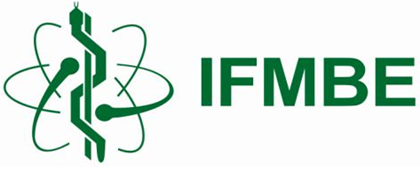
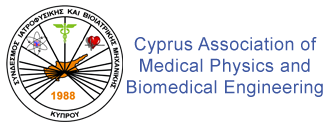
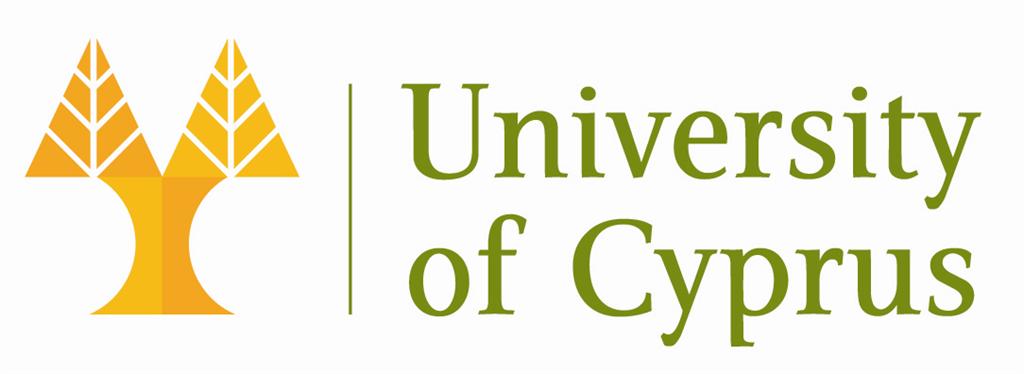
Co-Organized and Co-Sponsored By
